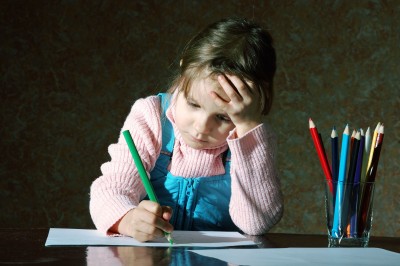Keeping Your Child in Private School After Divorce

Recently decided cases like Kelpy v. Kelpy in Loudoun County Circuit Court call to mind the challenges parents can sometimes face in ensuring their child continue to attend private school after divorce. During my time as a Fairfax County divorce lawyer and Loudoun County divorce lawyer, I have represented many parents who send their children to private school. The Northern Virginia area is fortunate to have a fine selection of private schools. Having represented parents sending their children to Madeira, Georgetown Visitation, National Cathedral School, Sidwell Friends, Flint Hill School, Loudoun Country Day School, the Hill School, Wakefield, and Woodberry Forest – to name just a few – I am frequently asked by a parent contemplating divorce whether children can continue to attend their schools after divorce. I receive similar inquires from parents sending their children to sport-specific training centers such as the IMG Academy and/or medical need servicing schools such as the Spiritos School. As you might expect, the answer tends to be: “it depends.”
The Child Support Guidelines published by the Commonwealth of Virginia do not contemplate the costs of private school. Click here for more general information about child support. Therefore, absent agreement between the parties, a parent seeking to have the costs of private school considered by the court must seek what is a called a “child support deviation.” In essence, you are asking the court to deviate from the presumptive amount of child support. Virginia Code §20-108(B) plainly states that the presumptive child support amount may be rebutted and can be subject to deviation. Factors the court considers in rebutting the presumptive amount include anything “affecting the [support] obligation, the ability of each party to provide child support and the best interests of the child.” Notably, the statute itself directs courts to consider “direct payments ordered by the court for…education expenses, or other court-ordered direct payments for the benefit of the child.” See Virginia Code §20-108(B)(6).
A parent can be required to pay for private educations expenses, even though such expenses exceed the presumptive guideline amount, when there is a demonstrated need for the child to attend private school and the parent has the ability to pay. See Ragsdale v. Ragsdale, 30 Va. App. 283 (1999). In making this determination, courts consider factors such as the availability of satisfactory public schools, the child’s attendance at private school prior to the separation and divorce, the child’s special emotional or physical needs, religious training, and family tradition.” Joynes v. Payne, 36 Va. App. 401(2001); Solomond v. Ball, 22 Va. App. 385 (1996).
Demonstrating those factors requires the presentation of evidence, so be prepared to demonstrate your child’s needs or discuss your family’s traditions. The requirement that the trial court consider all of the statutory factors necessarily implies substantive consideration of the evidence presented as it relates to all of the factors set forth in Virginia Code §20-108.1. Note, this does not mean that the trial court is required to quantify or elaborate exactly what weight or consideration it has given to each of the statutory factors. It does mean, however, that the court’s findings must have some foundation based on the evidence presented. Wagner v. Wagner, 4 Va. App. 397 (1987). “As we have often said: ‘[T]he trial court must consider each of the statutory factors, but may determine what weight to assign to each of them.'” Robbins v. Robbins, 48 Va. App. 466 (2006). Your presentation of evidence relating to your child’s need to attend private school is paramount.


